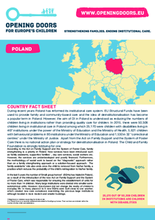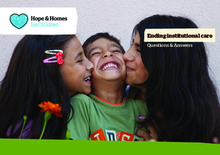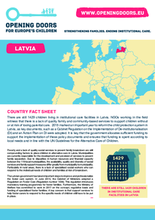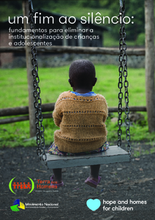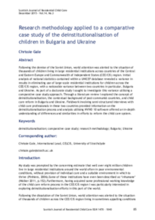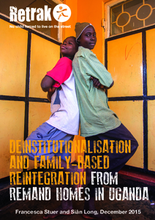Displaying 351 - 360 of 691
The purpose of this chapter of The United Nations Convention on the Rights of the Child: Taking Stock after 25 Years and Looking Ahead, is to outline the importance of children’s rights monitoring of (international) institutions such as the ICC and to introduce a measurement matrix for undertaking such monitoring.
Due to poverty and military conflicts in the east, the number of children in institutional care in Ukraine has increased.
This Country Fact Sheet discusses Poland’s recent reforms to its institutional care system.
This publication includes common questions and answers on the implications of institutional care and why it should be ended.
This Country Fact Sheet from Latvia reports that there are currently 1,429 children in Latvia living in institutional care facilities.
This fact sheet highlights Bosnia and Herzegovina’s latest developments in Deinstitutionalization.
Décadas de pesquisas comprovam que o crescimento em instituições de acolhida gera consequências psicológicas, emocionais e físicas, incluindo transtornos de apego, atrasos cognitivos e no desenvolvimento, e uma falta de habilidades sociais e de competências para a vida, trazendo diversas desvantagens na idade adulta.
This study discusses a variance in results in eliminating use of large-scale residential institutions for children across the CEE/CIS region.
This report looks at the adaptation of Retrak’s Family Reintegration Standard Operating Procedures in the context of children in temporary youth detention institutions, known as remand homes, in Uganda.
This video from Child's i Foundation documents the story of Mercy from Redeemer House in Jinja, Uganda.


